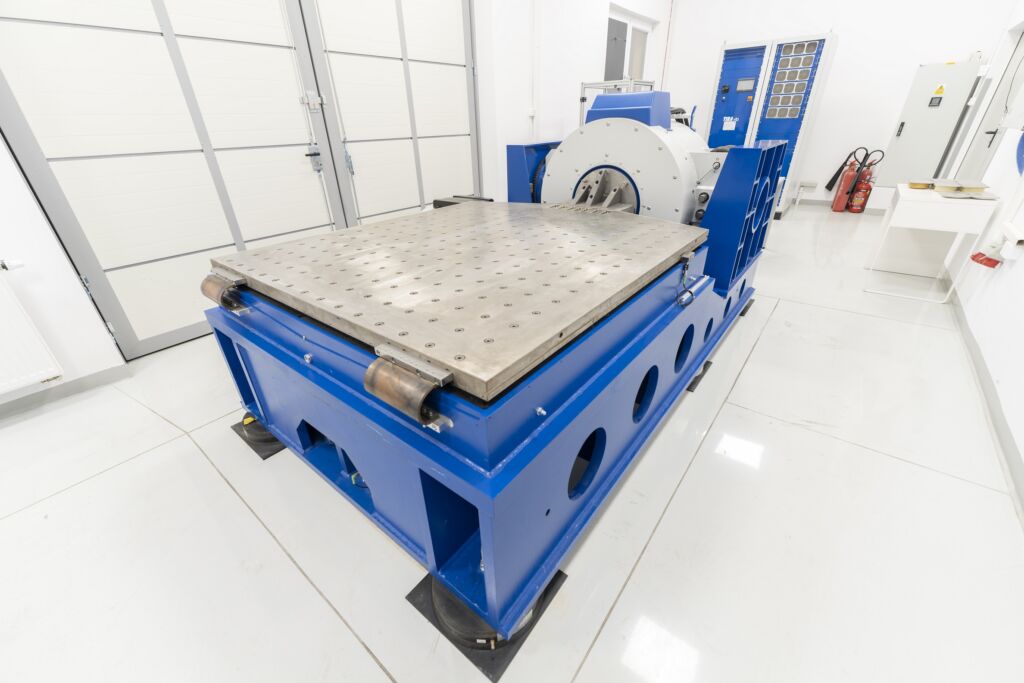services
Research on chemical power sources
We carry out tests of all types of chemical power sources.
The Chemical Research Laboratory of Power Sources has accreditation No. AB 124 granted by PCA in 1997.
UN 38.3 tests:
- UN 38.3 tests according to UN Manual No. ST/SG/AC.10/11/Rev.7 Section 38.3 Lithium metal and lithium ion batteries
Tests according to R100 and R136:
- Tests according to UN ECE Regulation No. 100
- Tests according to UN ECE Regulation No. 136
Tests according to PN-EN standards
Mechanical tests:
- Fragmentation of metallic materials by absorption-desorption of hydrogen from the gas phase
- Humidity resistance
- Sinusoidal and random vibrations
- Mechanical impacts, crushing, blows, punctures
- Thermal shocks
- Corrosion resistance test
- Cyclic temperature changes
- Tests at reduced and increased pressure
- Tests at elevated and lower temperatures
Electrical tests:
- Electrical testing using various electrochemical techniques
- Production and testing of model basic cells of button structure and prismatic
- Determination of electrical characteristics of systems based on:
- alkaline water electrolytes
- acidic water electrolytes
- lithium technologies
- and electrical characteristics of supercapacitors
- Studies of electrochemical properties of component materials in systems based on:
- acidic water electrolytes
- alkaline water electrolytes
- lithium technologies
- and materials used in backup batteries
- Photovoltaic cell efficiency tests in outdoor conditions
- Fuel cell performance testing
- Capacity verification (discharge)
- Load acceptance capacity test
- CCA starting capacity test up to 2000A
- Charge retention test
- Cyclic resistance (durability) test
- High Current Discharge Test
- Testing for suitability for standby operation
- Short circuit current and internal resistance testing
- Testing the maximum allowable discharge current
- Testing charge acceptance after deep discharge
- Overload test
- Short circuit test
- Electrical tests (stationary and during exposure) of reserve batteries
- Insulator resistance measurements
- Electrochemical tests of separators
- Corrosion resistance test of the grid
- Studies on the effect of electrolyte composition modification on the electrical properties of cells
Safety tests:
- improper installation
- leakage and deformation resistance
- propagation study
- external short circuit resistance
- resistance to overcharge and overdischarge
- BMS performance
- single failure test
- forced discharge
- fire resistance test
Physicochemical and analytical tests
- Research and analysis of materials in terms of composition, physicochemical and functional properties and environmental safety, including analysis of:
- electrolytes
- electrode materials
- separators
- Quantitative analysis of C/N/H/S/O elements in solid samples
- Chemical analysis of inorganic materials
- Research on the suitability of raw materials for the production of chemical power sources
- Quantitative analyses e.g.
- alloying elements: Sb, As, Sn, Bi, Zn, Se, Ca, Al, Ag, Cu, Fe
- and impurities: Ni, Mn, Cd, Te (detection threshold 0.0005%)
- Determination of Hg content in solid and liquid samples
- Determination of grain size distribution, particle size distribution measurements in the nano range, measuring range 2nm to 3µm
- Determination of specific surface area, determination of full adsorption-desorption isotherms, microporosity
- Characterization of suspensions by measuring zeta potential
- Phase identification of substances, X-ray phase qualitative and quantitative analysis
- Determination of network parameters, measurement angle range 3 to 20 2Ɵ
- UV-VIS spectrophotometry of solutions, quantitative determination of cations and anions, measuring range 190-1100 nm
- Quantitative and qualitative thermal analysis (TGA, DTA) of solids in the temperature range of 20 – 1500°C, determination of the heat of reaction and phase transformations using the DSC technique up to 700°C
- FT-IR spectra measurements of samples in all states of matter, using various measurement techniques:
- transmission
- reflective
- emission
- Water consumption measurement
- Physical tests of separators
- Studies on the physicochemical properties of electrode materials at various stages of their production
- Studies of the physicochemical properties of component materials in systems based on:
- acidic water electrolytes
- alkaline water electrolytes
- lithium technologies
- and materials used in backup batteries
- Microscopic and macroscopic observations of the structural elements of the cells

Accredited research
The Chemical Power Sources Research Laboratory operating within the Institute is accredited by the Polish Centre for Accreditation and performs tests of electrical, mechanical, and climatic parameters, as well as safety parameters for use and transport of all types of accumulators and batteries.
Contact us